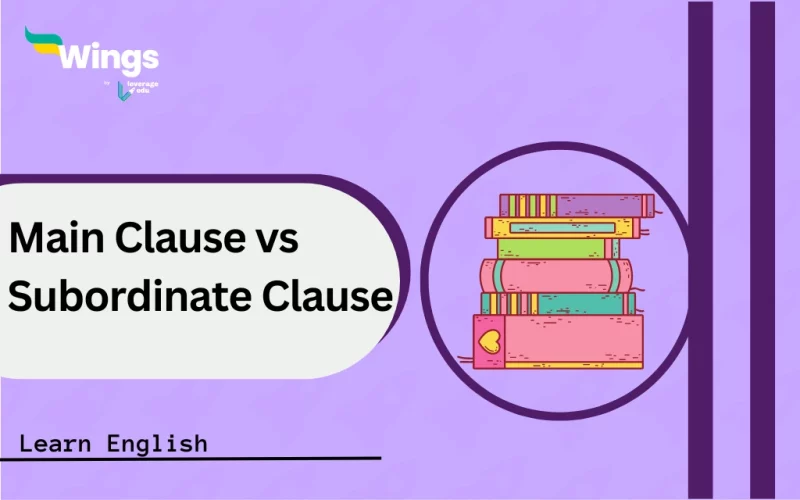Main Clause vs Subordinate Clause: Have you heard about the main clause and subordinate clause? Or what could be the difference between the two? Well, these two clauses are a major part of English grammar. Even as a grammar nazi, it is must that you have the proper knowledge about the main clause and subordinate clause. Keep reading this blog to learn all the differences between the main clause vs subordinate clause with appropriate meanings.
This Blog Includes:
What is Main Clause?
A main clause also referred to as an independent clause, is something that can form a complete sentence standing alone. It contains both a subject and a predicate. It can convey meaning and at the same time make sense, even if taken away completely from the main sentence. Here is an example to better understand it.
Example: I had coffee and biscuits.
What is Subordinate Clause?
The subordinate clause, also known as the dependent clause, cannot stand alone as a complete sentence. However, it does add information to the main part of the sentence. This clause has a subject and a verb. Also, it is dependent on the main clause to be meaningful. Let’s take a look at the example below to get a better understanding.
Example: If you win the prize.
In this sentence, ‘you’ is the subject, while the word ‘win’ is the verb.
Must Read: Learn All About Clauses
Main Clause vs Subordinate Clause – Differences
Now that we know what both these clauses are, let’s take a look at the difference between the two for a clearer understanding.
| Particulars | Main Clause | Subordinate Clause |
| Meaning | A group of words that contain a subject and a predicate and can stand alone as an independent sentence. | They are a group of words and a predicate which cannot stand alone as an independent sentence. |
| Complete Thought | The main clause expresses a complete thought. | The subordinate clause cannot express a complete thought. |
| Independent Sentence | The main clause can function as an independent sentence. | Subordinate clauses do not function as an independent sentence. |
| Beginning | The main clause does not begin with a subordinate conjunction or a relative pronoun. | While subordinate clauses begin with a subordinate conjunction or a relative pronoun. |
Understanding the Main Clause vs Subordinate Clause
Here is an example of both the main clause and subordinate clause to give you a better understanding.
Example: I saw a man who was crying.
In the above sentence, there are two clauses ‘I saw a man’ and ‘who was crying’. In the first clause, ‘I saw a man’ can stand alone as a complete sentence as it stands as a complete sentence as it has a meaning. This is an example of a main clause.
Similarly, in this sentence, the second clause ‘who was crying’ cannot stand alone as a sentence because it is meaningless. Such a clause is known as a subordinate clause.
Related Reads on English Grammar
| Subordinating Clause Example with Meaning | 7+ Coordinating Clause Examples |
| Coordinating Clause: Definition, Usage & Exercise | What is a Subordinating Clause? |
FAQs
A main clause is a group of words that includes a subject and a verb that can form a sentence.
This clause is a group of words that is not a sentence but adds information to the main part of the sentence.
‘I played out until it went dark. ‘ The phrase ‘until it went dark’ is the subordinate clause because it requires additional information to make sense.
We hope this blog has provided you with all the necessary information on main clause vs subordinate clause. To advance your grammar knowledge and read more informative blogs, check out our Learn English page and don’t forget to follow Leverage Edu.
 One app for all your study abroad needs
One app for all your study abroad needs














 45,000+ students realised their study abroad dream with us. Take the first step today.
45,000+ students realised their study abroad dream with us. Take the first step today.

